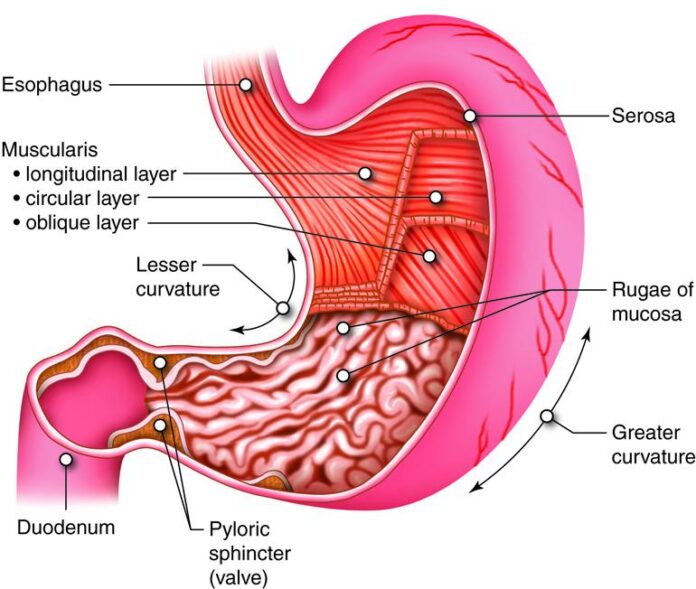
Gastrointestinal diseases are a group of disorders that affect the digestive system, which includes the stomach, intestines, and other organs involved in the digestion of food. These diseases can range from mild to severe, and can have a significant impact on a person’s quality of life. In this comprehensive guide, we will explore the different types of gastrointestinal diseases, their symptoms, causes, diagnosis, treatment, and prevention methods.
Types of Gastrointestinal Diseases
There are several types of gastrointestinal diseases, each with its own set of symptoms and complications. Some of the most common gastrointestinal diseases include:
– Gastroesophageal reflux disease (GERD): This condition occurs when stomach acid flows back into the esophagus, causing symptoms such as heartburn, chest pain, and difficulty swallowing.
– Irritable bowel syndrome (IBS): IBS is a chronic condition that affects the large intestine and causes symptoms such as abdominal pain, bloating, and changes in bowel habits.
– Inflammatory bowel disease (IBD): This term includes conditions such as Crohn’s disease and ulcerative colitis, which cause chronic inflammation of the gastrointestinal tract and can lead to complications such as ulcers, fistulas, and strictures.
– Peptic ulcer disease: This condition occurs when open sores develop in the lining of the stomach or small intestine, causing symptoms such as abdominal pain, bloating, and nausea.
– Gallbladder disease: This condition occurs when the gallbladder becomes inflamed or infected, leading to symptoms such as abdominal pain, fever, and jaundice.
Symptoms of Gastrointestinal Diseases
The symptoms of gastrointestinal diseases can vary depending on the specific condition and its severity. However, some common symptoms that may indicate a gastrointestinal problem include:
– Abdominal pain or cramping
– Bloating or gas
– Diarrhea or constipation
– Nausea or vomiting
– Heartburn or indigestion
– Rectal bleeding
– Unexplained weight loss
It is important to note that these symptoms can also be caused by other conditions, so it is important to consult a healthcare professional for an accurate diagnosis.
Causes of Gastrointestinal Diseases
Gastrointestinal diseases can be caused by a variety of factors, including:
– Genetics: Some gastrointestinal diseases, such as Crohn’s disease and ulcerative colitis, have a genetic component that can increase the risk of developing these conditions.
– Diet: Certain foods can trigger or worsen gastrointestinal symptoms, such as spicy foods, fatty foods, caffeine, and alcohol.
– Infections: Bacterial, viral, or parasitic infections can cause gastrointestinal diseases such as gastroenteritis, which is inflammation of the stomach and intestines.
– Medications: Some medications, such as nonsteroidal anti-inflammatory drugs (NSAIDs) and antibiotics, can irritate the gastrointestinal tract and cause symptoms such as ulcers or bleeding.
– Lifestyle factors: Smoking, stress, lack of exercise, and poor sleep habits can also contribute to the development of gastrointestinal diseases.
Diagnosis of Gastrointestinal Diseases
To diagnose a gastrointestinal disease, a healthcare professional will typically perform a physical exam, review the patient’s medical history, and order diagnostic tests such as:
– Blood tests: These tests can help detect signs of inflammation, infection, or other abnormalities in the body.
– Stool tests: These tests can detect the presence of blood, parasites, or other abnormalities in the stool, which can indicate a gastrointestinal problem.
– Imaging tests: Tests such as X-rays, CT scans, and MRIs can provide detailed images of the gastrointestinal tract and detect abnormalities such as ulcers, tumors, or obstructions.
– Endoscopy: This procedure involves inserting a flexible tube with a camera into the digestive tract to examine the lining of the esophagus, stomach, or intestines.
Treatment of Gastrointestinal Diseases
The treatment of gastrointestinal diseases will depend on the specific condition and its severity. Some common treatment options for gastrointestinal diseases include:
– Medications: Medications such as antacids, proton pump inhibitors, antibiotics, and anti-inflammatory drugs can help manage symptoms and reduce inflammation in the gastrointestinal tract.
– Dietary changes: Avoiding trigger foods, eating smaller meals, and following a low-fiber or low-residue diet can help alleviate symptoms of gastrointestinal diseases.
– Lifestyle modifications: Quitting smoking, reducing stress, getting regular exercise, and improving sleep habits can also help improve gastrointestinal health.
– Surgery: In severe cases, surgery may be necessary to remove damaged tissue, repair a perforation, or relieve a blockage in the gastrointestinal tract.
Prevention of Gastrointestinal Diseases
While some gastrointestinal diseases cannot be prevented, there are steps that individuals can take to reduce their risk of developing these conditions, such as:
– Eating a healthy diet: A diet rich in fruits, vegetables, whole grains, and lean proteins can help maintain a healthy digestive system and prevent gastrointestinal diseases.
– Drinking plenty of water: Staying hydrated can help prevent constipation, which can contribute to the development of gastrointestinal diseases.
– Avoiding trigger foods: Foods that are spicy, fatty, or processed can exacerbate gastrointestinal symptoms and should be avoided.
– Managing stress: Stress can worsen gastrointestinal symptoms, so practicing relaxation techniques such as deep breathing, meditation, or yoga can help improve digestive health.
– Getting regular exercise: Exercise can help improve digestion, reduce inflammation, and maintain a healthy weight, all of which can prevent gastrointestinal diseases.
In conclusion, gastrointestinal diseases are common conditions that can have a significant impact on a person’s quality of life. By understanding the different types of gastrointestinal diseases, their symptoms, causes, diagnosis, treatment, and prevention methods, individuals can take proactive steps to maintain their digestive health and reduce their risk of developing these conditions. If you are experiencing symptoms of a gastrointestinal disease, it is important to consult a healthcare professional for an accurate diagnosis and appropriate treatment. Remember, early detection and treatment of gastrointestinal diseases are key to managing symptoms and preventing complications.












